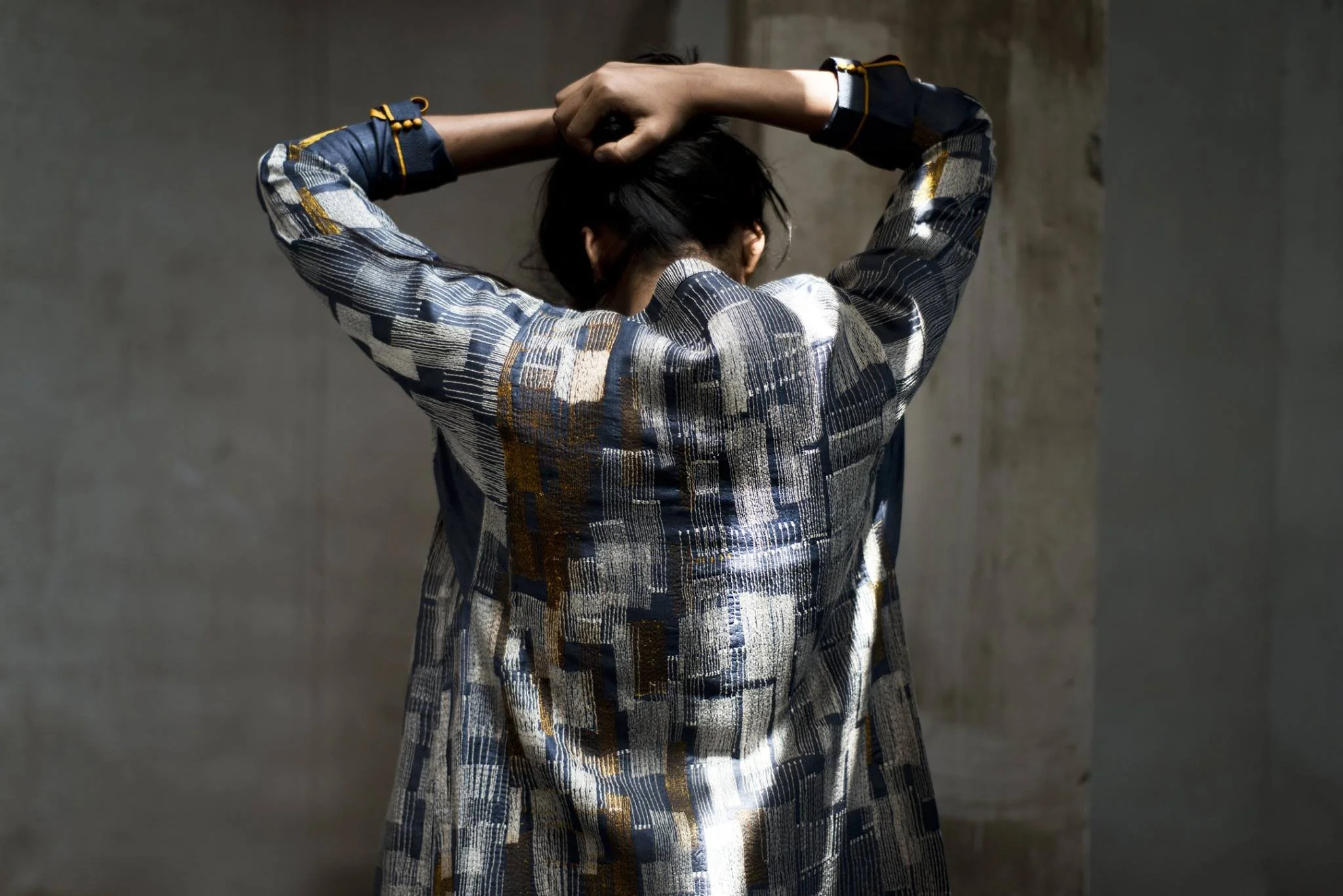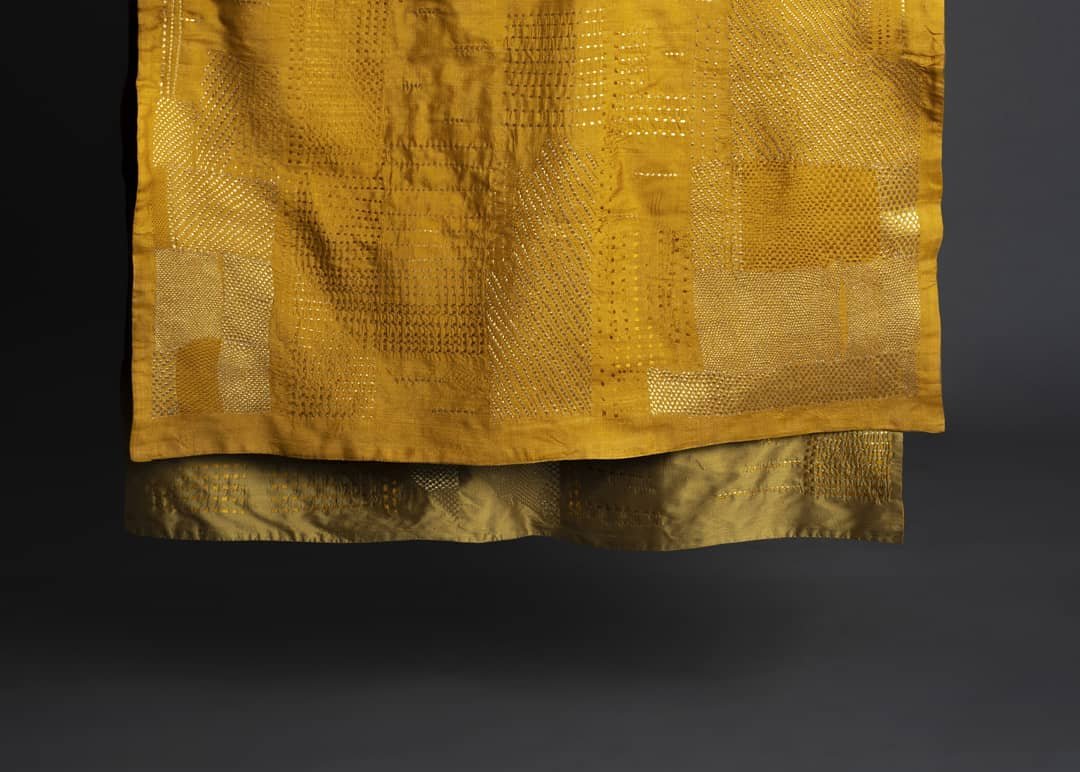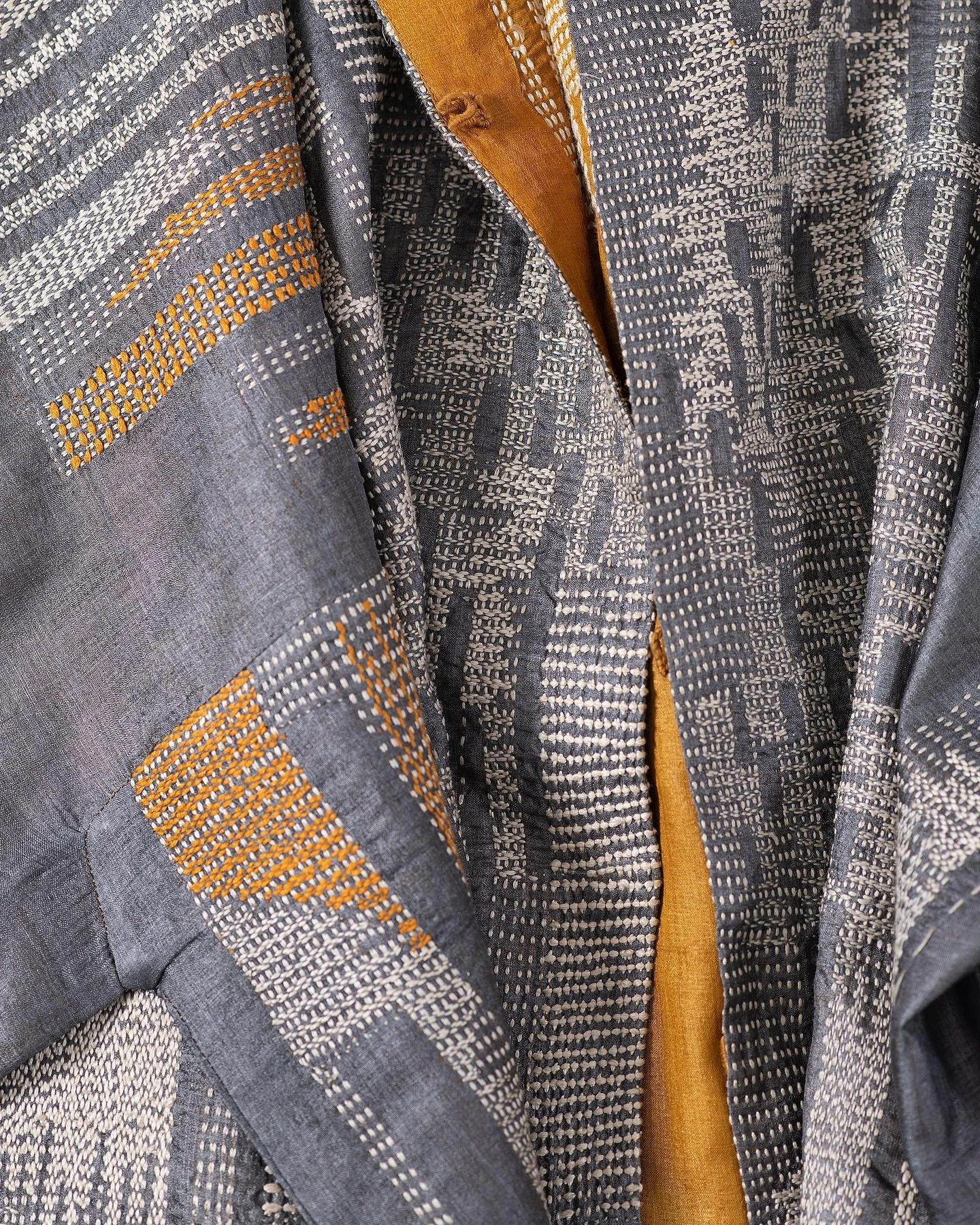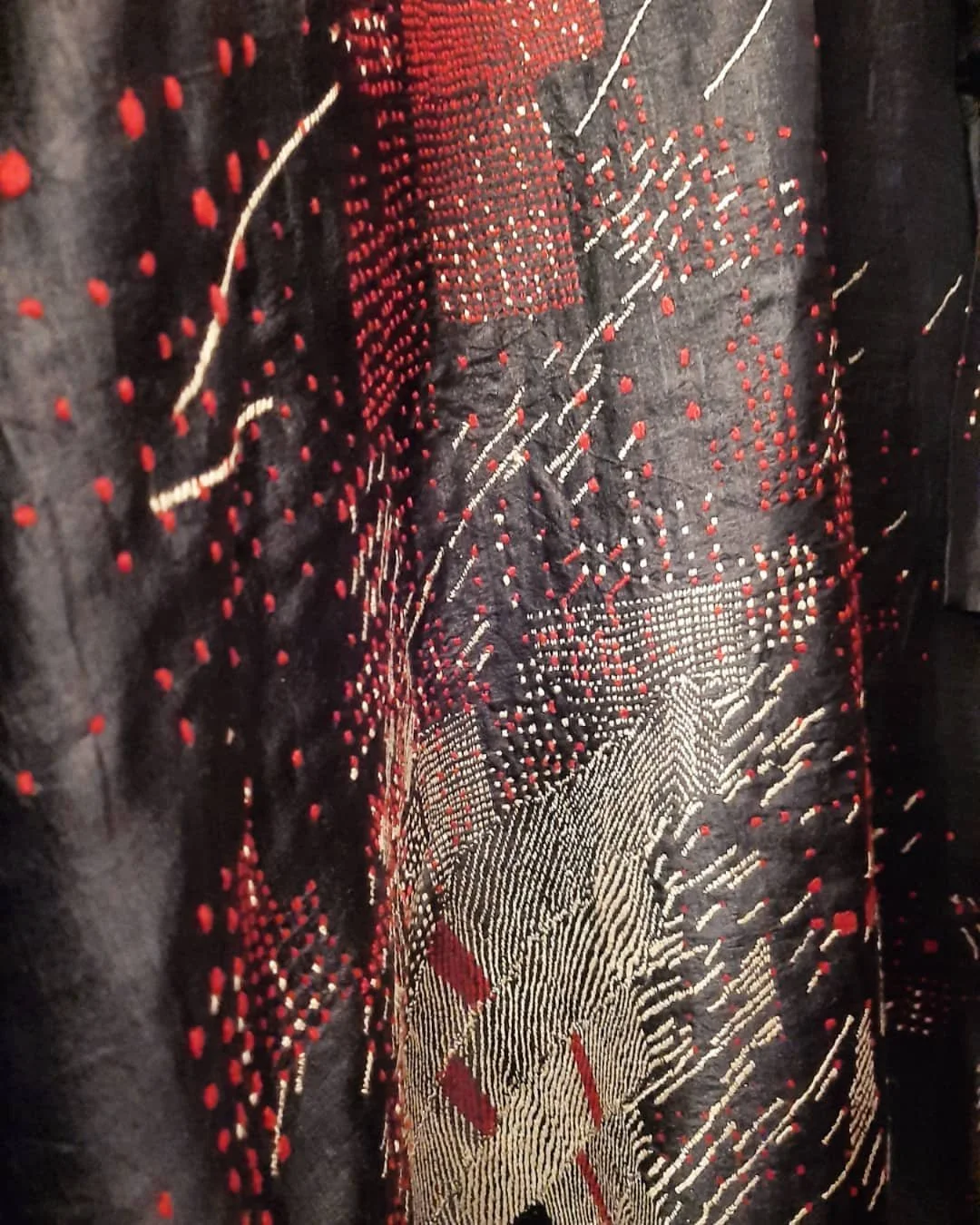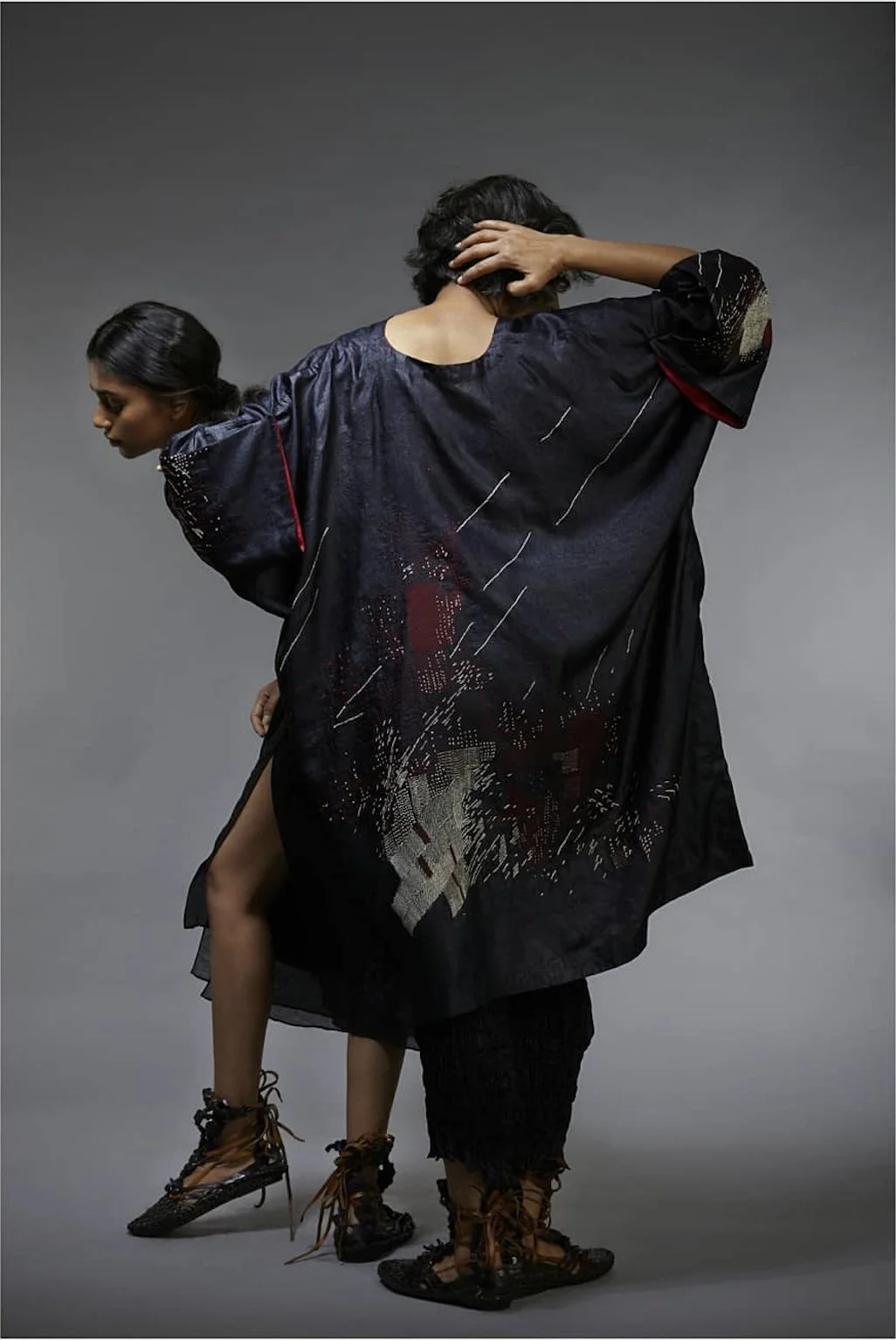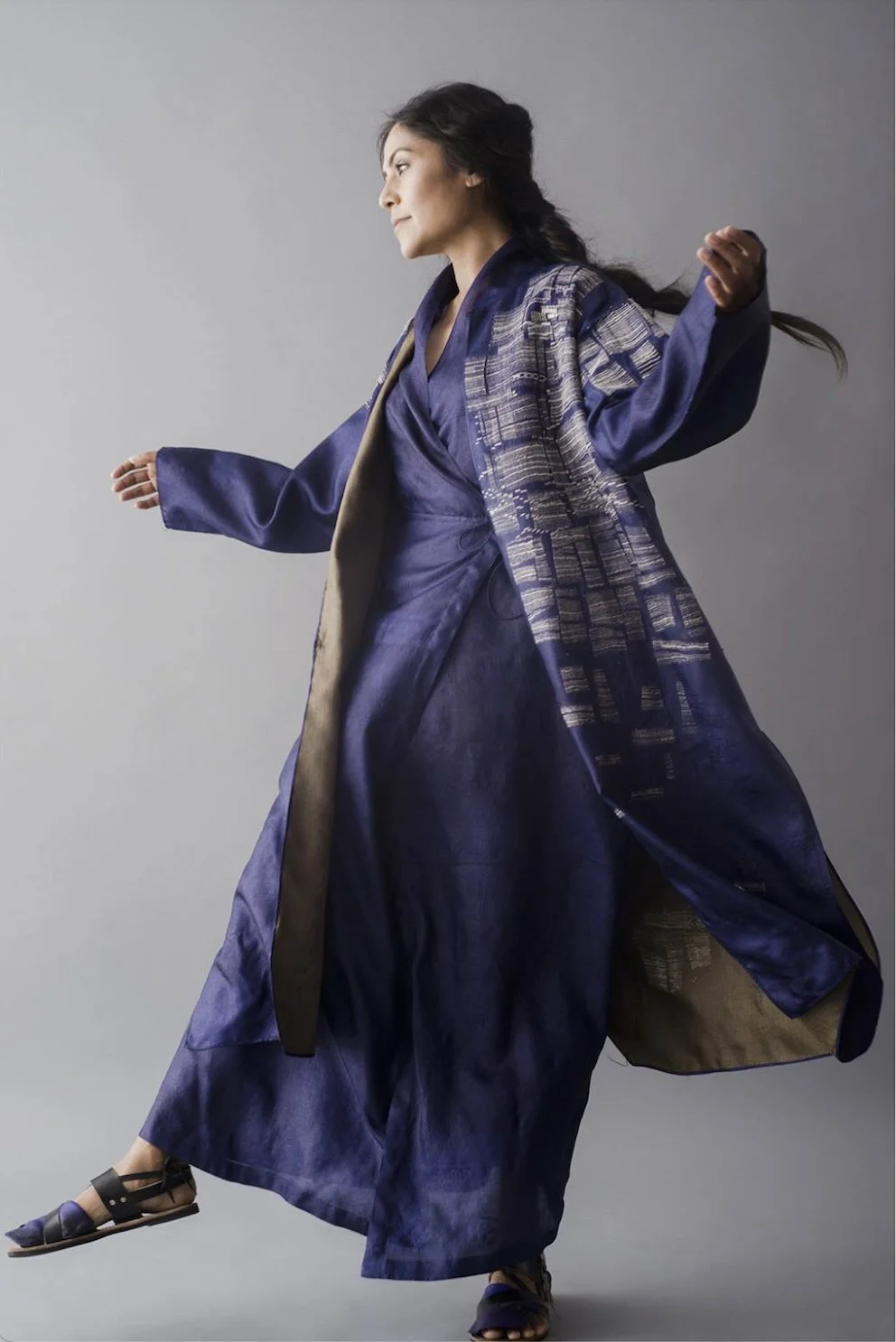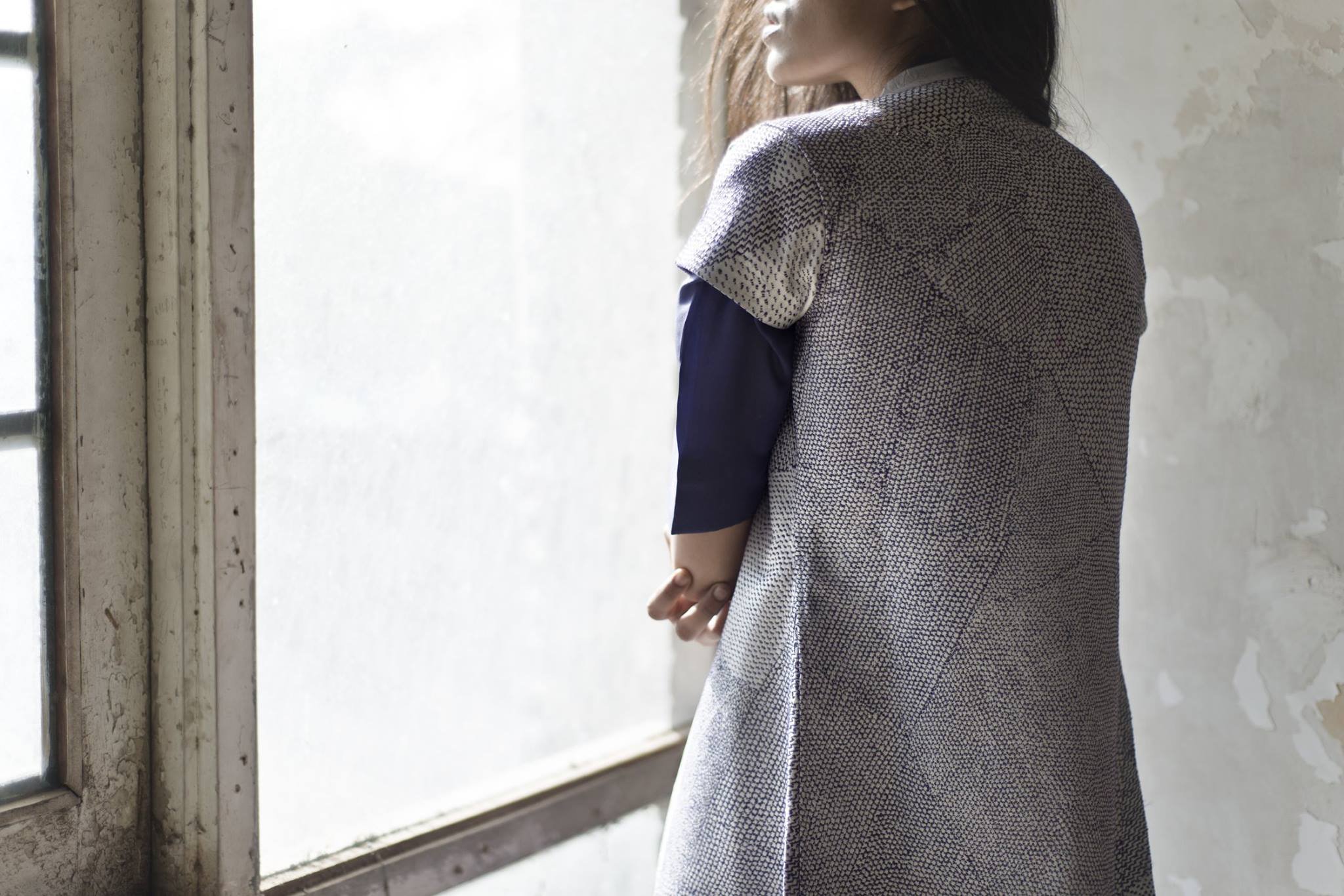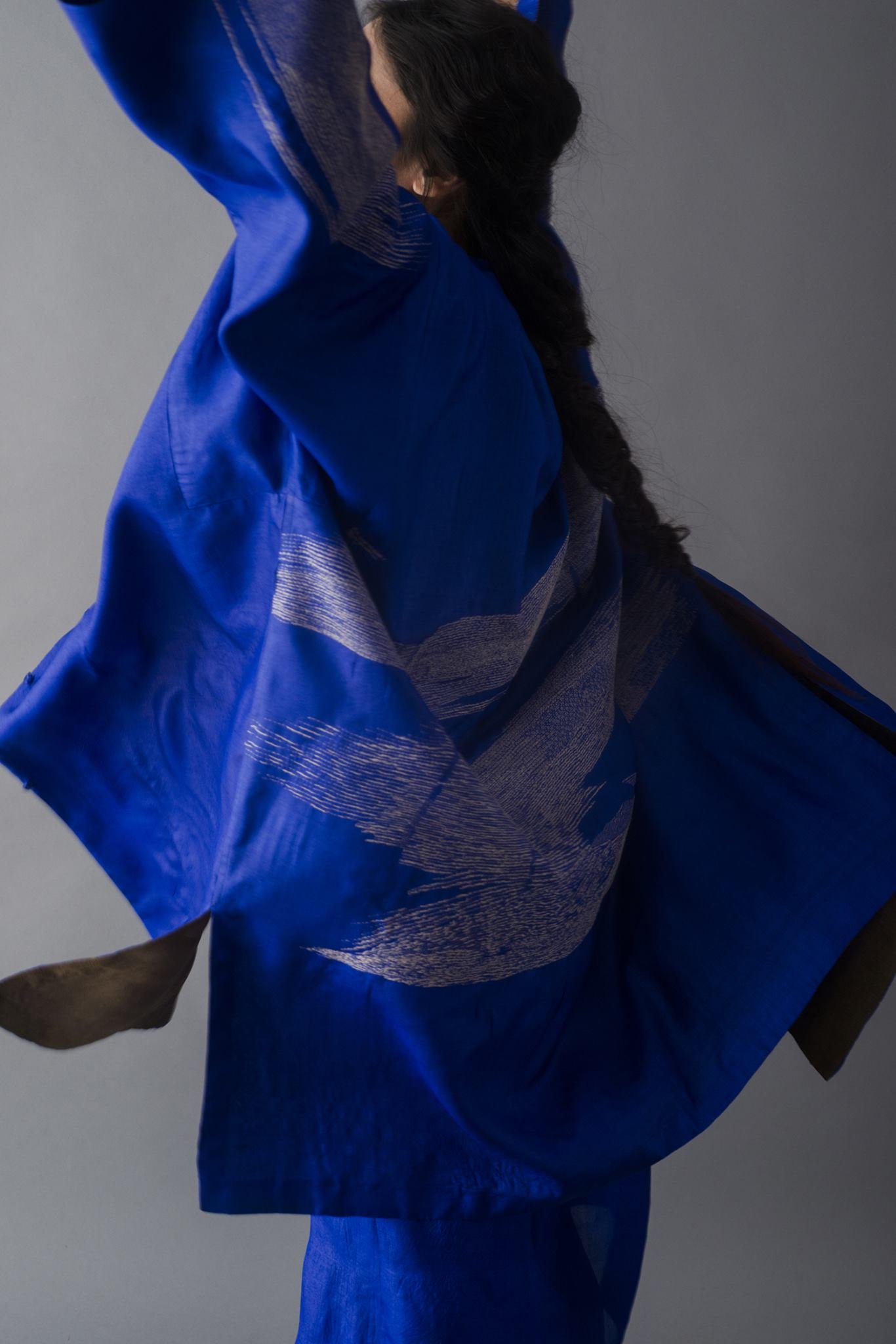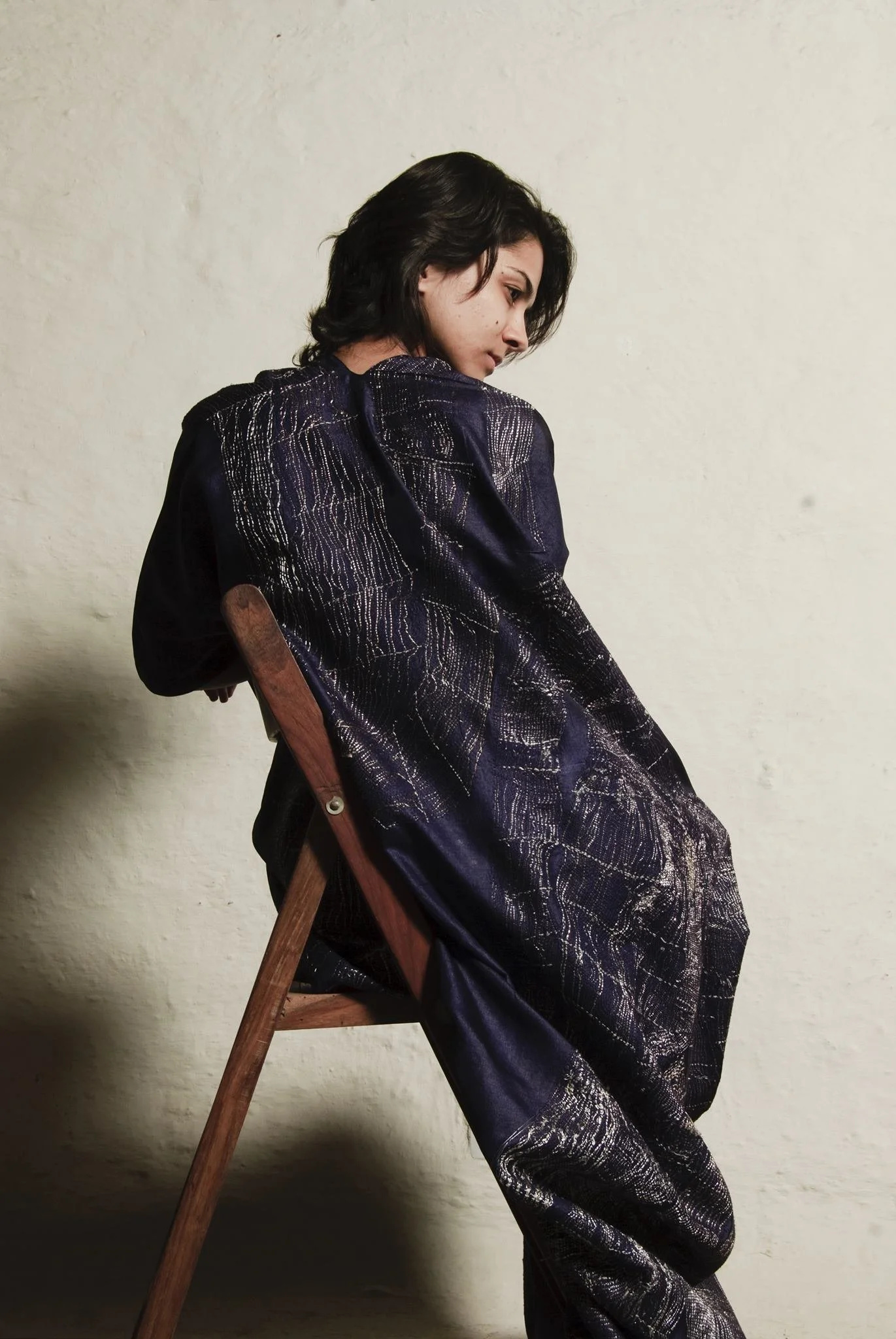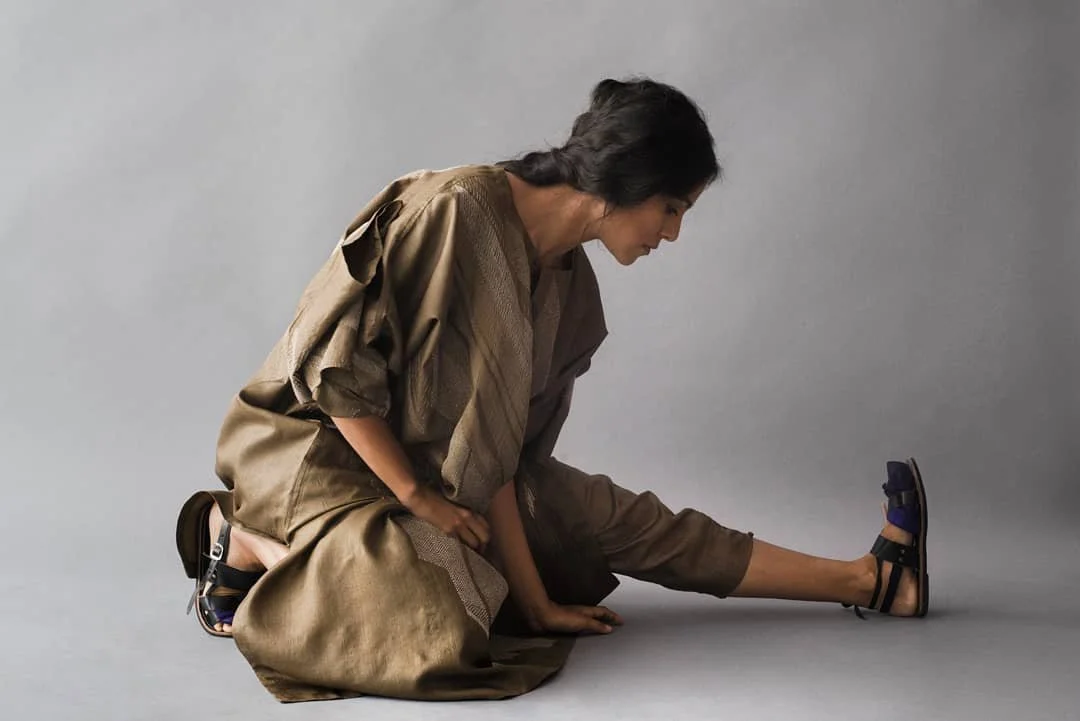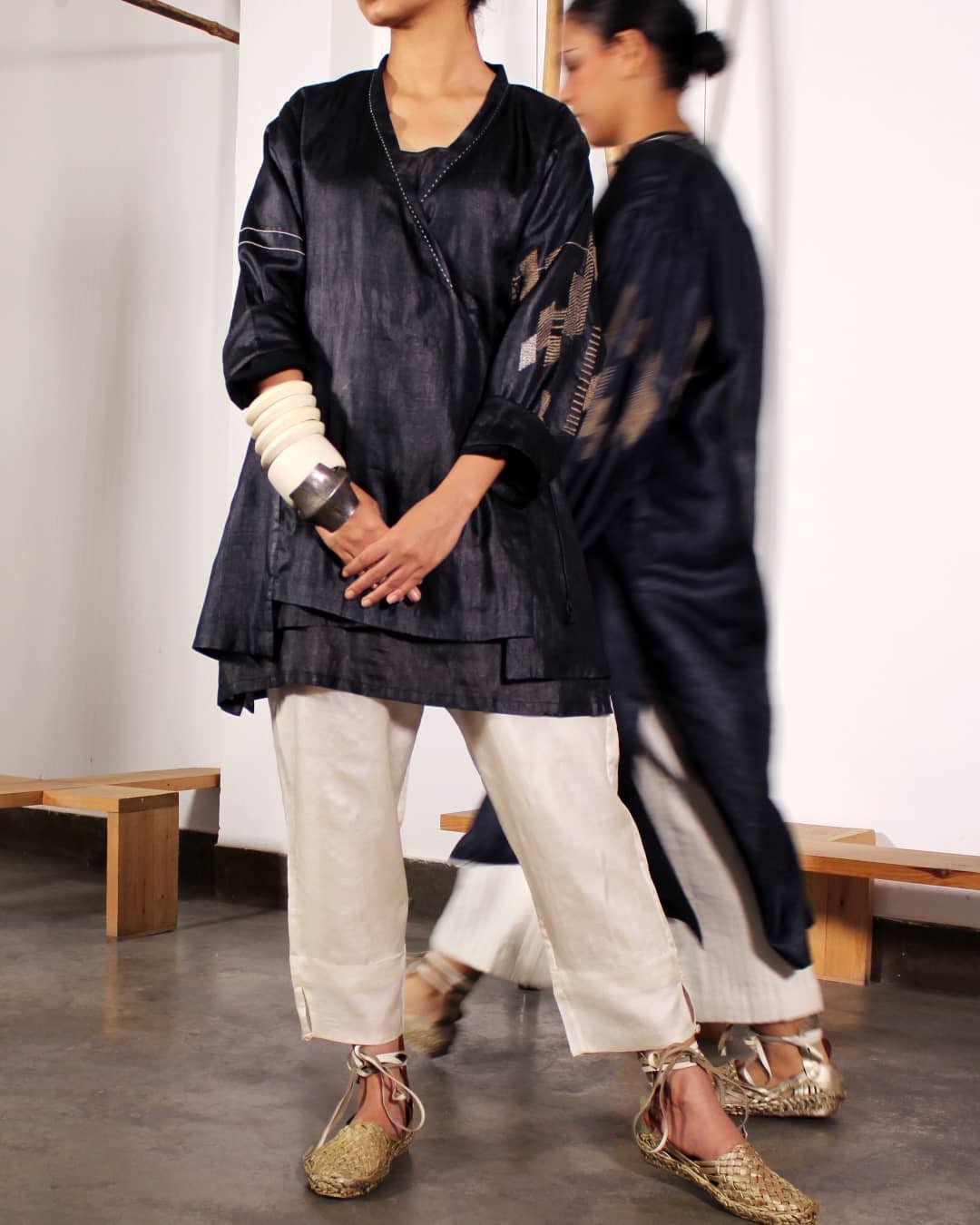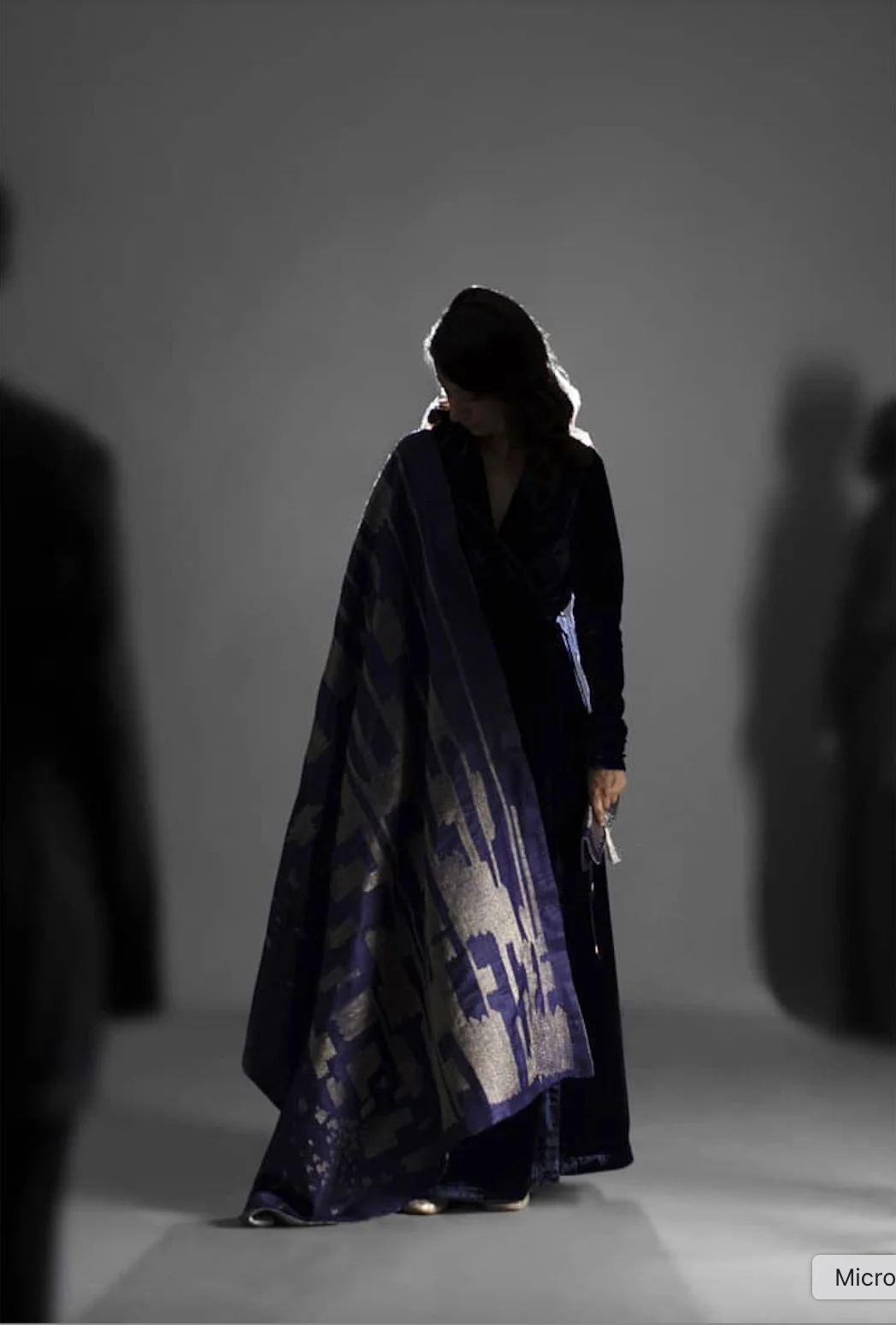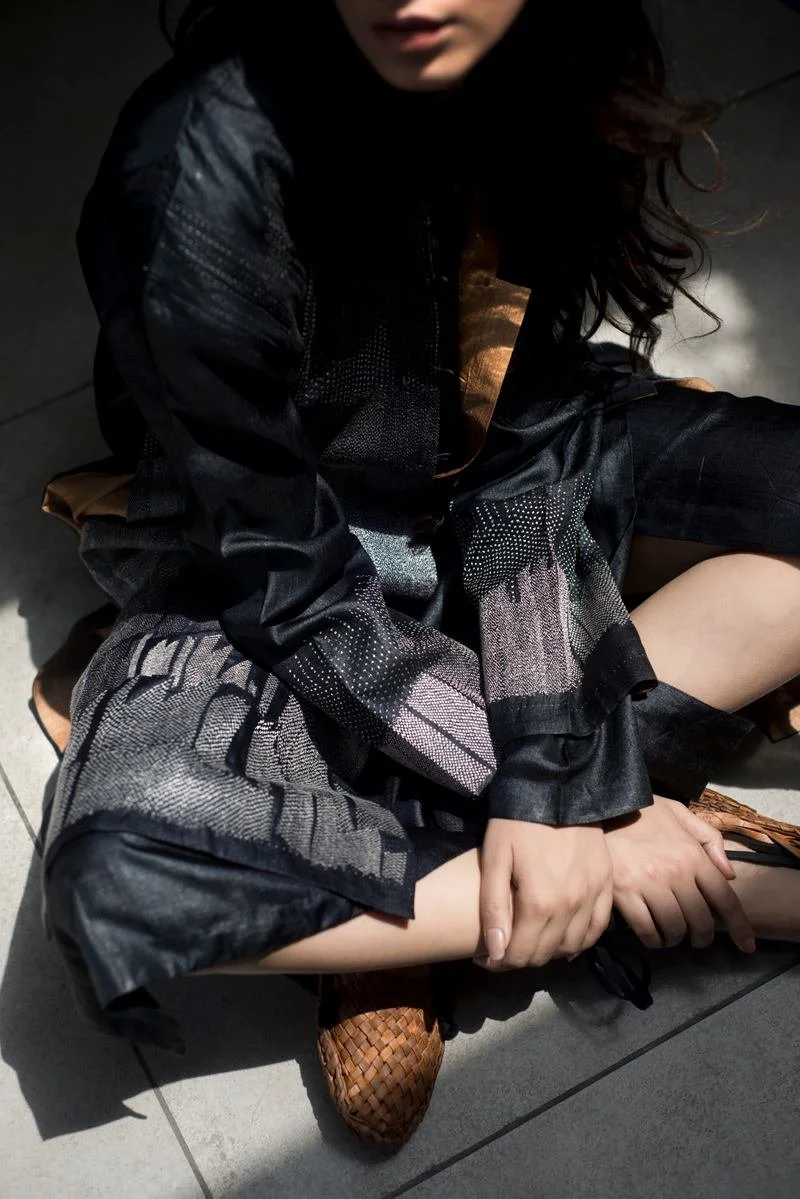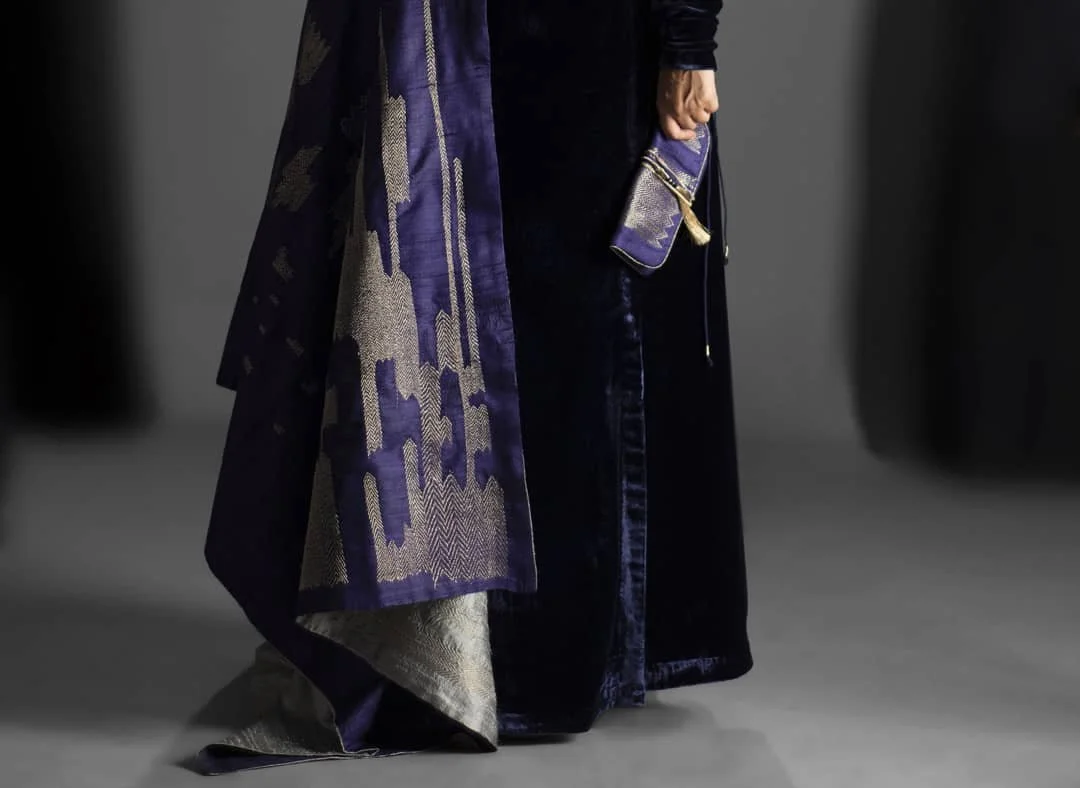Swati Kalsi
“Swati Kalsi has virtually re-invented the way embroidery with running stitch Sujani now looks” - Victoria and Albert Museum
Swati Kalsi is a Textile and Fashion Designer working with traditional Sujani embroidery from Bihar, and renowned for bringing contemporary relevance to the time-honoured handcrafted textiles of India. Her innovative approach intersects art and fashion, to produce unique designs considered both wearable art and luxury fashion, creating an interface between tradition and design.
Kalsi’s fascination with the simplicity of repeatedly inserting a needle into cloth to create incredibly complex, diverse results, informs the basis of her creative exploration. This simple process offers infinite potential for expression. Her investigations with artisanal craft are rooted in discovery, leading her to the development of her own unique design vocabulary.
Working directly with a team of fifteen traditional Sujani artisans located in Bihar, her collaborative workshops have developed into a unique exploration of process and technique, out of which emerge the designs. Each piece is the result of a highly collaborative and intimate experience that empower the artisans to fulfil their creative potential. The garments produced from the workshops are both poetic and graceful, with fluid silhouettes chosen to enhance the embroidery. The final outcomes are museum worthy, and so highly prized that people don't just buy pieces to wear, but as art for their homes.
The process of co-creation took years to develop, resulting in a mutual trust and respect. The team of artisans sit with Kalsi to discuss ideas, designs and inspiration, spending as much as 350 hours, and up to 80 days to develop of a single embroidered surface. Through this interactive creative process, Kalsi encourages the artisan’s artistic expression.
Organized as a residency, the artisans work together with Kalsi in a space designed explicitly for creative development. The workshops incorporate an intriguing give and take process that often takes unexpected routes to produce work that incorporates timeless, understated elegance. Kalsi’s process is intuitive rather than structured, as well as revolutionary and effortlessly contemporary. The final embroidery is then locally tailored and returned to the women for hand finishing.
Sujani embroidery is central to Kalsi’s work, a tradition that lies in the surfaces created by running stitches moving in transient intensities, thicknesses and colours. Textural and free form, Swati Kalsi’s intuitive way of working produces unique, abstracted representations of the more familiar grammar of objects we are used to seeing in embroidery from India. Her evocative work has an order in the seeming randomness of pattern, reminiscent of terrain mapping and cartography. Working with the hand-stitched tradition of Sujani embroidery, Kalsi has lifted it out of naive representations of village life into abstracted and seemingly unstructured patterns. Surfaces emerge on the fabric, where the intensity and length of stitches constantly vary forming indefinite shapes that float across the fabric. Her engagement with artisans through intense interactive creative processes, attempts to marry the skills of traditional craftsmen with the artisans aesthetic spirit.
Producing no more than seven new pieces a year across two workshops that last between thirteen and thirty days in length. Her creations are timeless, highlighting the quirks and anomalies that arise out of the process of creation. Pieces are not season specific, and silhouettes are developed to accentuate the detail of the craftsmanship. Natural fabrics like silk, cotton, and linen form the base, which is then stitched into free-flowing versatile silhouettes that are size inclusive.
“My mind sometimes juggles between wear-ability and statement as purpose. Sometimes each embroidery calls for a certain silhouette and vice versa. So, one thing calls for the other.”
The emerging silhouettes border on androgyny, taking insight from traditional Indian clothing. The distinct character of Kalsi’s designs is their aversion to ostentation, with even the densely embroidered pieces void of overwhelming decoration. According to the V&A ‘While there have been other interventions, it is Swati Kalsi who has virtually re-invented the way embroidery with running stitch Sujani now looks’.
The high costs of development and innovation inherent in one-of-a-kind pieces led Kalsi to develop a more diversified range, with the addition of a more affordable pret collection born out of the need to sustain business as well as diversify her creative practice. Introduced in 2019, the pret-a-porter collection is produced by a small team at Kalsi’s studio in Delhi. With only one collection produced a year, she doesn’t follow the dictates of the mainstream fashion calendar.
At a time when the much of the world is abandoning the handmade, India’s diversity of embroidery is breath taking, and remains relatively unchanged from its ancient roots, continuing to this day as a living craft. In terms of textile traditions, India has one of the richest, with a number of designers interpreting the diversity of that traditional wealth from new perspectives, resulting in fresh interest in traditional handcrafted textiles. While Kalsi believes that preserving existing traditions of craft is vital, she also believes it’s important to foster new ways of seeing tradition.
While India is rich in terms of its textile traditions, with craft recorded as the second largest employer in the country. It has nevertheless, experienced a serious loss of traditional skills such as embroidery, dying, weaving and printing due to lack of support.
Each region in India has its own characteristic style of embroidery, each embodying a unique cultural relevance. Sujani, which originated in the villages of Bihar, is similar in technique to the better-known Kantha quilts of Bengal, where several worn saris and other pieces of cloth are layered and quilted together by a series of running stitches. It is traditionally practiced by women, quilting together on a base of local cotton.
Old Sujani embroideries depict religion, nature and daily life, while more modern ones illustrate village life, Hindu epics, and social issues. The running stitches portray unique narrative elements, showing the sorrows and realities of women’s lives and experiences in India, transforming a mundane quilt into a testimony of their lives. Traditionally, the work of Sujani embroiders was used to create original works of art for home and family, often with the intent of wrapping a newborn baby.
Retention, exploration, development and expression of craft are the reasons behind the Swati Kalsi collection. With a deep respect for the history and culture of Indian handcraft, Kalsi uses Sujani as the jumping off point to explore new potential directions while respecting the tradition and the innate creativity of the artisans themselves. Kalsi walks the fine line between retention and reinvention of material culture based on respect and collaboration. Few people manage to carefully and respectfully manage the past and the future of craft while valuing the artisans and translating their skills and traditions into sophisticated products suitable for a global luxury consumer, but Kalsi does. Kalsi’s work, borders on couture, and is firmly embedded in the luxury marketplace.
She is defining artisanal craft from the developing world as on par with the western understanding of a luxury fashion house and product. Through showcasing her work in museums as art and using her collaborative embroidery workshops as an opportunity to explore and push the boundaries of craft, she is forging a new path, redefining luxury fashion in the process. The Victoria and Albert Museum stated, “The designer’s creative input elevates the running stitch to another level’.”
Kalsi’s work has been featured in Vogue India, Marie Clair, Elle and Grazia, amongst others, as well as represented in a number of exhibitions including the Devi Art Foundations Fracture: Indian Textiles, New Conversations, and the V&A’s Fabric of India exhibition. She has also been recognised for her ‘Contribution to revival of Indian craft' by Elle Magazine.
Website: https://www.swatikalsi.com
Instagram: @swatikalsiworks
